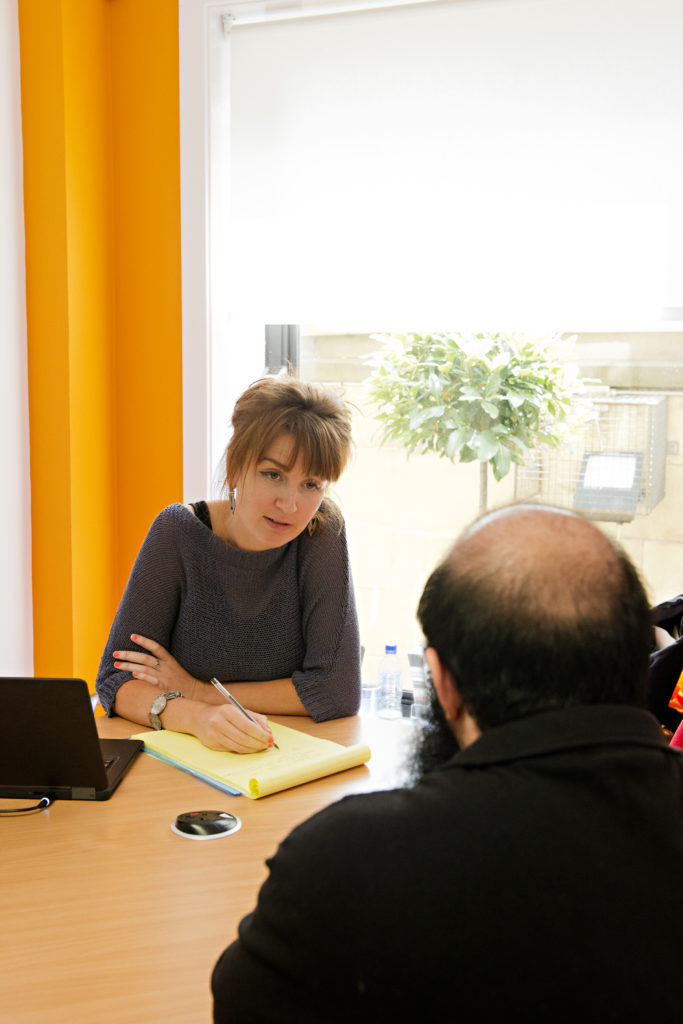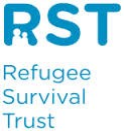Head of the University of Strathclyde Law Clinic Gillian Melville writes about working with destitute clients as part of the DASS project.
The law clinic’s role is to help people fully understand what has happened in their case and what they need to do to make a fresh asylum claim. People are also advised on the different immigration claims they may have. If the law clinic is able to assist in the preparation of an asylum claim, the person is taken on as a client.
The University of Strathclyde Law Clinic (‘law clinic’) is a student run organisation and has been a partner of DASS since the project’s inception in 2015. The law clinic began seeing clients in 2016. In that time, approximately 200 destitute people have been referred to the law clinic.
The odds of a client succeeding in a fresh claim for asylum are stacked against them and the amount of legal aid available to solicitors in Scotland is very often insufficient for the amount of time that needs to be spent on such claims. The law clinic therefore helps plug a gap in legal aid availability for fresh claims work.
The law clinic currently has 30 open cases. From October 2018 to January 2019, the law clinic submitted paperwork to solicitors in respect of six clients, and supporting paperwork directly to two service users to assist with their claims.
When preparatory work is sent to a solicitor, it still needs to be finalised and submitted. Normally, the first decision is a refusal by the Home Office. This can be with or without a right of appeal. If the client gets a right of appeal before the Immigration Appeal Tribunal, this is positive, as it is difficult for fresh claims to get even that far. However, the client’s solicitor then needs to prepare for the appeal hearing and wait for the decision after the hearing. Therefore, even when paperwork is submitted to a solicitor, it can take years before the client gets a result, and for the law clinic to hear about it. However, the law clinic’s work still adds value throughout the process, as highlighted by the account of one immigration solicitor below:
“My client was a failed asylum seeker whose claim was based on his sexuality. The Law Clinic…assisted him [with] obtaining evidence to support a fresh claim. He was…referred to me to finalise the claim and…submit it to the Home Office.
The communication with the Law Clinic was excellent. They had…done a huge volume of work with my client [who] was vulnerable and struggled to provide a clear and consistent account. The students had spent a significant amount of time with him to ensure that his position was properly noted in a very detailed and thorough statement.
The fresh claim was refused by the Home Office, but my client was given…[a] right of appeal. The fact that so much in the way of preparatory work had been done by the Law Clinic…meant that I was able to prepare the appeal to a very high standard. My client’s appeal was…allowed and he was granted refugee status. He was absolutely delighted.”
There are currently 36 student volunteers on the law clinic’s immigration unit, the majority of whom are working on cases or are otherwise active through research work. Victoria Silver is the student project coordinator, and works on several cases. She believes the benefit of the clinic’s work is the time that can be spent working with clients, getting to know them and their cases so well:
“From a student perspective there are several obvious practical benefits to the Immigration Unit at the Strathclyde Law Clinic. We can allocate numerous people to a case in order to compile new evidence…for people’s claims, including carrying out what can generally be lengthy interviews. The real strength of the immigration unit though, is that we can spend the time getting to know people seeking to live in UK legally and permanently, and subsequently help them through the maze of administrative burdens. Because the clinic provides free support and has many students keen to get involved, we are really able to get to know [the clients], and I believe the work that we compile will be stronger because [of that].”

Over the past six months, the law clinic’s immigration unit has assisted clients in the following ways:
- Helping a family of three, one of whom was a very vulnerable person, to identify a new type of claim and assist in its preparation by taking detailed statements, obtaining an expert report, and medical evidence. The family had several previous claims and the law clinic had to sift through vast amounts of paperwork when preparing this claim.
- Assisting a client to obtain DNA test results to evidence his nationality to assist with fresh claim for asylum where nationality was disputed. The law clinic also instructed an expert report in this case, and obtained several witness statements. The client was unable to progress this work through his solicitor, as it was not covered by legal aid.
- Assisting a human rights defender from Russia to instruct and pay for an expert report where the expert would not provide a report for legal aid. The law clinic prepared a very detailed witness statement for the client, and identified evidence that would assist in his claim that had not been identified previously.
As noted above, the law clinic’s strength is being able to spend time with clients to dig deep into their claims and build excellent relationships with them, which is highlighted through the words of one of our current clients below:
“The lives of my young daughter and I changed when I received a letter with the refusal of my immigration case. My previous solicitors advised me that they were unable to represent me any further. I made enquiries to other solicitors, but they all said that I had exhausted my avenues and they couldn’t represent me. I was in a very dark place not knowing what the next day had in store for us. To say that our lives were incredibly overwhelming and unpredictable feels like an understatement.
The Law Clinic advisors have been brilliant and a lifeline for my case. They gave me much needed immigration advice and knowledge regarding my case and my rights. They continue to support, guide and update me on my Immigration case. The students have helped us through all facets of this difficult journey and process, constantly continuing to battle on our behalf. I am now able to focus on my health and most importantly being a mum to my daughter. I do not know what the future holds but I’m positive that my case is in the right hands and I don’t need to constantly live in fear and worry. University of Strathclyde Law Clinic Students will forever have a special place in our hearts.”
In addition to casework, the law clinic also delivers public legal education sessions to asylum seekers and refugees, and to social workers working with this client group. Four sessions have been delivered over the past four months, and two more are pending. These sessions are aimed at empowering asylum seekers and refugees (and those working with them) through heightened awareness of the law and how it affects them.


